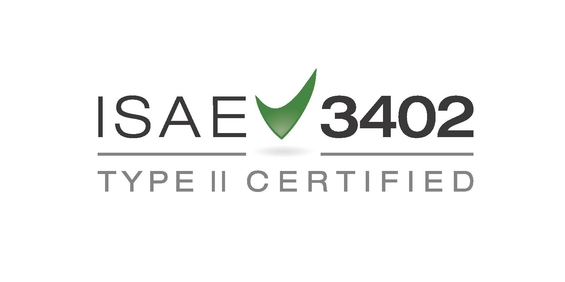
In the past, the mood on stock markets was often influenced by political entanglements. Nowadays, political upheaval no longer seems to matter and markets get used to this. It suggests that only a massive upheaval would get markets worried. Let’s call this a bull market: the general trust in the economic climate and growth in corporate profits is such that even if Trump turns out to be a Russian citizen and all inhabitants of Catalonia have gotten a Flemish passport, markets wouldn’t move an inch… The investment climate is just not that fantastic, but nearly there… when the average return on European junk bonds stands at 2,3%, and is therefore lower than the most liquid and creditworthy bonds in the whole world (those issued by the US) that yield 2,4% (in US$). American junk bonds yield a bit higher, though, but are on average of lower quality than their European equivalents.
As good as it gets
Even the world’s largest bond manager (PIMCO) reported last month: ‘this is as good as it gets’, when addressing the minimal margins that are available to compensate for credit risk, this after they had been looking all over the world to find some extra yield. Like ourselves, PIMCO saw still some value in Asset Backed Securities (ABS), principally where the collateral exists of Mortgage Backed Securities (MBS) and in Emerging Market Debt (EMD). Outside these areas, it has become increasingly difficult to find some yield.
As a result, many asset managers are – for quite some time already – in the ‘waiting-mode’ to discover the first cracks in bond markets, but so far in vain We all know it’s a bubble, but as a result of the buying programs of Central Banks, it is our central bankers who keep on postponing the inevitable pain. Our Super Mario announced last month that he was cutting his buying program to Euro 30 billion per month but at the same time he told us that he would continue buying till at least September 2018 or however long it takes… this last remark is obviously meant to scare investors who are considering to position themselves for a rate increase. Like ourselves and many others. In the meantime, the inflation rate doesn’t increase at all: in Germany, the official inflation rate even dropped to 1,4% on an annual basis. Is this caused by the increasing influence of the internet?
We are also waiting for a correction in US share prices, especially in the expensive tech-sector. But whilst we were waiting, turnover and profits of the big tech firms again happily increased. Amazon does not only wants to start selling food products but now also medicines. ING fears that Amazon might start offering financial services. Isn’t there any sector safe from the ‘ouvertures’ of internet providers? I find it very revealing that the largest shop owning company in the Netherlands, Rodamco, is putting its flagship shopping center near Amsterdam up for sale. You probably know that rental income in these shopping malls are linked to the turnover of the shops. If Rodamco is throwing in the towel, it says a lot on what retail shops still have to fear from their on-line competitors. And how bearish the future looks for (investors in) retail stores.
Bubble
We only have to wait for a next bubble: next to bonds, a new bubble seems to form in alternative investments. Not in hedge funds though, where outflows still dominate, but inflows in (principally) Private Equity and Private Debt are exuberant. A lot of cash is being collected from investors which can’t be invested easily. This explains our reluctance when selecting fund managers in this asset class. During last summer, we decided to invest in a semi-open end fund with a mixed mandate (Private Equity and Debt, Infrastructure and Real Estate. We had to wait 4 months, but then, we were at least fully invested in one shot. Our next step will be similar, when we invest in Fixed Income Asset Backed Securities, collateralized, semi illiquid, but already invested. So far we have avoided the classic Private Debt funds.
Slowly but gradually, the end of this credit cycle is in sight. Certain investors are already preparing for the downfall of to-easily-granted-credit during this cycle. It’s called ‘Distressed Debt’ and we too will be looking for suitable investors in this asset class. We’ve already spoken to a few parties in this respect. As mentioned in our previous newsletters, our preference is for relatively short maturities (4 – 6 years). Let us hope that patience is also in this respect a virtue…
With best regards, also on behalf of my collegues,
Wouter Weijand

